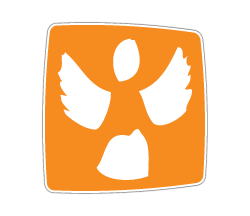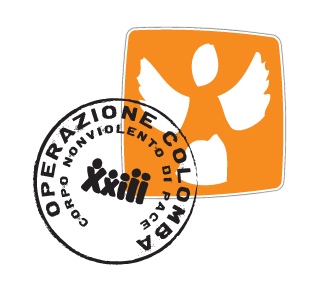In one of the first spring days, we are sitting in a tent, in Tel Abbas. Winter seems far behind as well as the cold and the intrusive mud in the streets. Someone knocks at the door, we open and Abu Suliman from Homs appears at the entrance. He has a gloomy look, far looking over the border, in the lands where is still winter in the men’s hearts. “Look here”. He tells us of an attack with sarin gas in Khan Sheikkun, a small village at two hours’ drive from our position in northern Lebanon. Two hours distant as two centuries. In his phone, I could see horrible images, children piled one on another in dreadful positions. Their eyes wide open and a pale complexion. Some have a white slime coming down from the mouth. Eyes still full of terror, a violence to the heart and to the mind of any observer. Abu Suliman speaks in spurts, calibrating each word, without exaggerating and with no hurry in expressing his feelings. “How can you kill so little human beings in such a manner?”.
No hate words are coming from his mouth, but only of deep sorrow, the same you feel when a friend is dying and you can’t do anything to prevent it. A stabbing pain that crashes you. The day flows slowly with meetings and visits, around evening I hear a voice from outside: “If you’re not doing anything, come out for a moment, I need to talk to you”. Outside the tent, near the arcade of the wooden school I find Abu Abdallah head bowed, in a position I’ve seen already when he should tackle difficult subjects that disturb him. He stands, looks at me and starts: “We can’t go on like this, how can Europe and its governments not react, how can America waves in front of this. Where are the free people, the people of freedom? This is a massacre, it’s been years now we are hit, wounded, killed from our own government”. His voice is shaking for the emotion, he can’t believe it, he would like to react and shout to the world his disdain and disgust for the events that are taking place on his land. A shout that would break stones. Moving up the look on me, he concludes: “Here they all have blood on their hands. Anyone who doesn’t oppose these events, it’s an accomplice”. I would like to reassure him that this time will be different, that the reaction of the international community will be tough, but I realize it will not be. Looking around me, I notice it’s only he and I under a starry sky, in a particularly silent night. A man and a boy face to face, in the middle of all the world’s evil. Before going to sleep we visit a young couple with three children. While we are with them, TV keeps on sending images that shall be put in history books. I send a voice message to a boy and to a young widow, both natives to Khan Sheikkun. I ask them how they are and if they have news about their dearests in Syria with few words. The woman answers with a resigned voice, almost automatically: “Yes, it’s true. There’s been an attack. It’s ages my village get bombarded under rain of missiles. Many innocents have died.” The other person answers me with a broken voice: “More than 70 people died. These are the names; the majority are families”. I ask to translate the names and word by word we realized that entire families have been destroyed, suffocated by a gas that burns and obstructs the throat. Al Yussef is the family that counted more martyrs. It should be engraved on a monument, ancient olive trees shall be planted in their memories. “If a God exists, He is not responsible towards us but we are the ones responsible towards Him”. Words written in 1943 by Etty Hillesum, in a diary destined to be read to generations away. In this dark and silent night, of which we can’t catch a glimpse of its end, rise from our hearts a prayer of resistance.
Ale



 OPERAZIONE COLOMBA
OPERAZIONE COLOMBA
